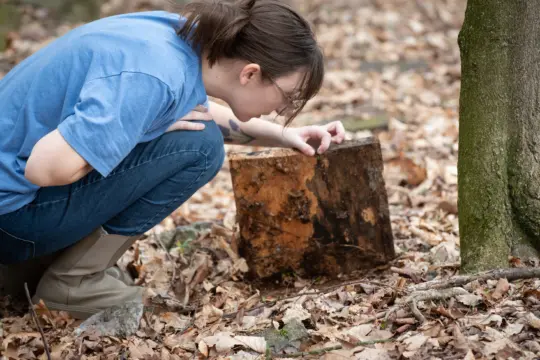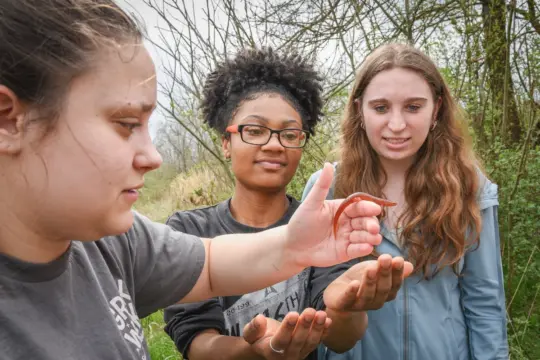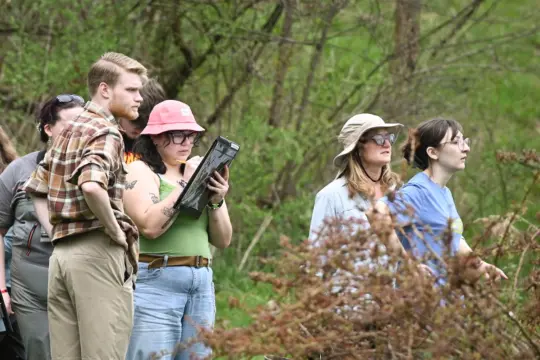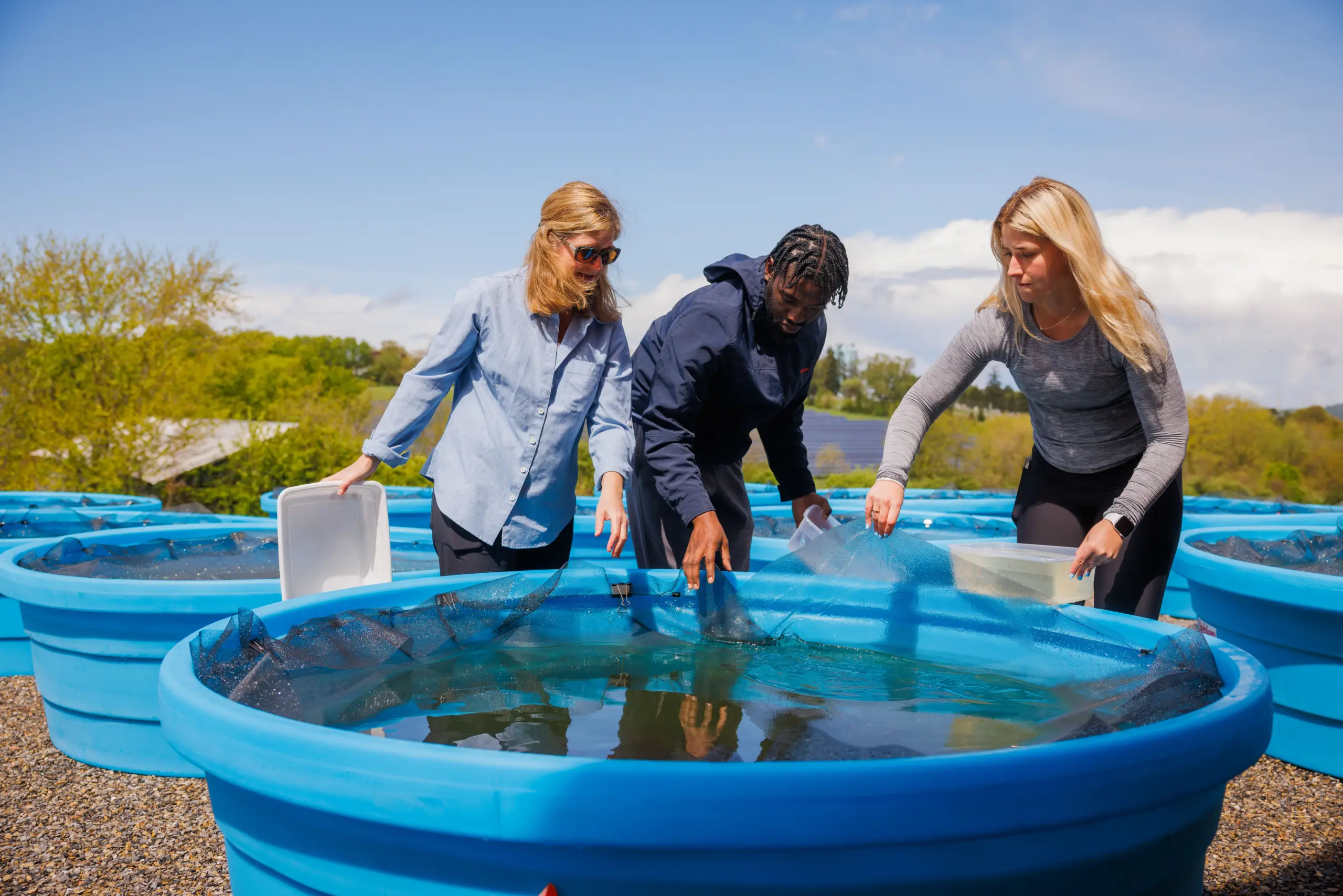
Watershed Studies Minor
Understanding the delicate balance between land, water and communities is key to a sustainable future. Susquehanna’s watershed studies minor empowers you to face this crucial challenge with actionable solutions to be a changemaker in environmental conservation.
Explore diverse topics like water studies, restoration ecology, policy and practical field skills in this interdisciplinary program. Gain a deep understanding of watersheds and their complex challenges in collaborative learning and hands-on experiences. Work with the Freshwater Research Institute (FRI) and Center for Environmental Education and Research (CEER) at on-campus restoration sites to translate theory into practice through real-world projects.
Learn to bridge the gap between science, policy and practical skills, equipping you with a versatile toolkit for tackling pressing environmental issues. Nestled within the Chesapeake Bay watershed, this program offers unparalleled access to experiential learning opportunities and internships as a launchpad for impactful careers in watershed conservation and restoration.
Take a tour of the center for environmental education and research
Come take a look at over 80-acres of reclaimed farmland right next to campus that serves as a living laboratory for our students, faculty and staff.
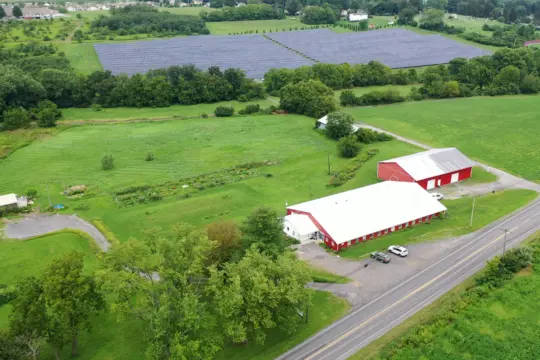
SU By the Numbers
More Than Metrics
87-acre
field station adjacent to campus
100%
of students gain professional experience through internships
99%
of students receive financial aid through academic merit scholarships and need-based grants
Explore Your Studies
Progarm Resources
When you enroll at Susquehanna, you’ll be paired with an advisor and application tool to guide you in your course planning and scheduling. The following is an excerpt from the complete course catalog. Enrolled students follow the requirements of the course catalog for the academic year in which they declare each major and/or minor and consult with their advisor(s).
Minor in Watershed Studies
Learning Goals
- Possess in-depth knowledge for assessing and improving the health of watersheds.
- Acquire skills applicable to watershed research, restoration, and management, such as fieldwork, grant writing, mapping, and project management.
- Demonstrate an understanding of the interdisciplinary approach needed to achieve successful outcomes for watersheds.
The minor in watershed studies requires students to complete a minimum of 21 semester hours. Student must complete the following courses with a grade of C- or higher:
5 Required courses:
- 4 EENV-220 Water Resources
- 1 WTST-200 Watershed Studies Colloquium
4 Choose from:
- 4 COL-408 Aquatic Ecology and ECOL-409 Aquatic Ecology Laboratory
- 4 ECOL-560 Interdisciplinary Explorations in Ecology when the topic is Restoration Ecology
- 4 EENV-313 Susquehanna River
- 4 ENST-301 Current Topics in Environmental Studies
4 Choose from:
- 4 ENST-335 Environmental Laws and Regulations
- 4 POLI-212 Introduction to Public Policy
- 4 POLI-215 Law and Politics
- 4 PPOL-351 Public Administration
- 4 PPOL-352 Environmental Policy
4 Choose from:
- 4 ENGL-299 Professional & Civic Writing
- 4 EENV-360 Geographic Information Systems
4 Choose from:
- 4 MGMT-240 Principles of Management
- 4 POLI-300 Seminar when the topic is Non-Profit Management
0-4 Internship
Students must complete an internship, which may or may not be taken for credit. WTST-400 is recommended but other internships may be considered. All internships require approval by the Program Coordinator.
Double-counting Restriction for Interdisciplinary Minors
Only 8 semester hours of this minor may be double counted toward the student’s major or another minor.
Recent Employers
Beyond Susquehanna
Students Study Fish to Detect Local Stream Health
Students interning with Susquehanna’s Freshwater Research Institute work on exciting projects in the remote forests of northern Pennsylvania, like studying fish and aquatic insects to determine the health of small streams.
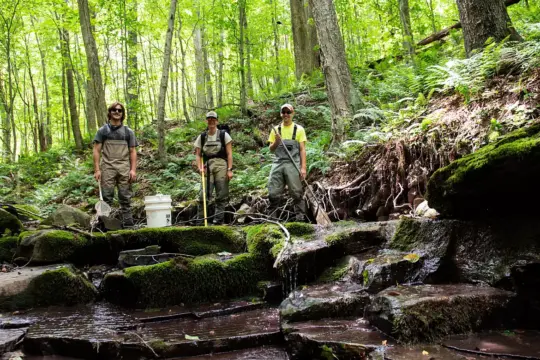
TAKE A VIRTUAL TOUR
Launch Center for Environmental Education & ResearchYOU MAY ALSO BE INTERESTED IN
See the full list of related programs on the School of Natural and Social Sciences page.
Have Questions?
Contact Us
Minor Coordinator
Siobhan Fathel
570-372-4768
Start your journey.

